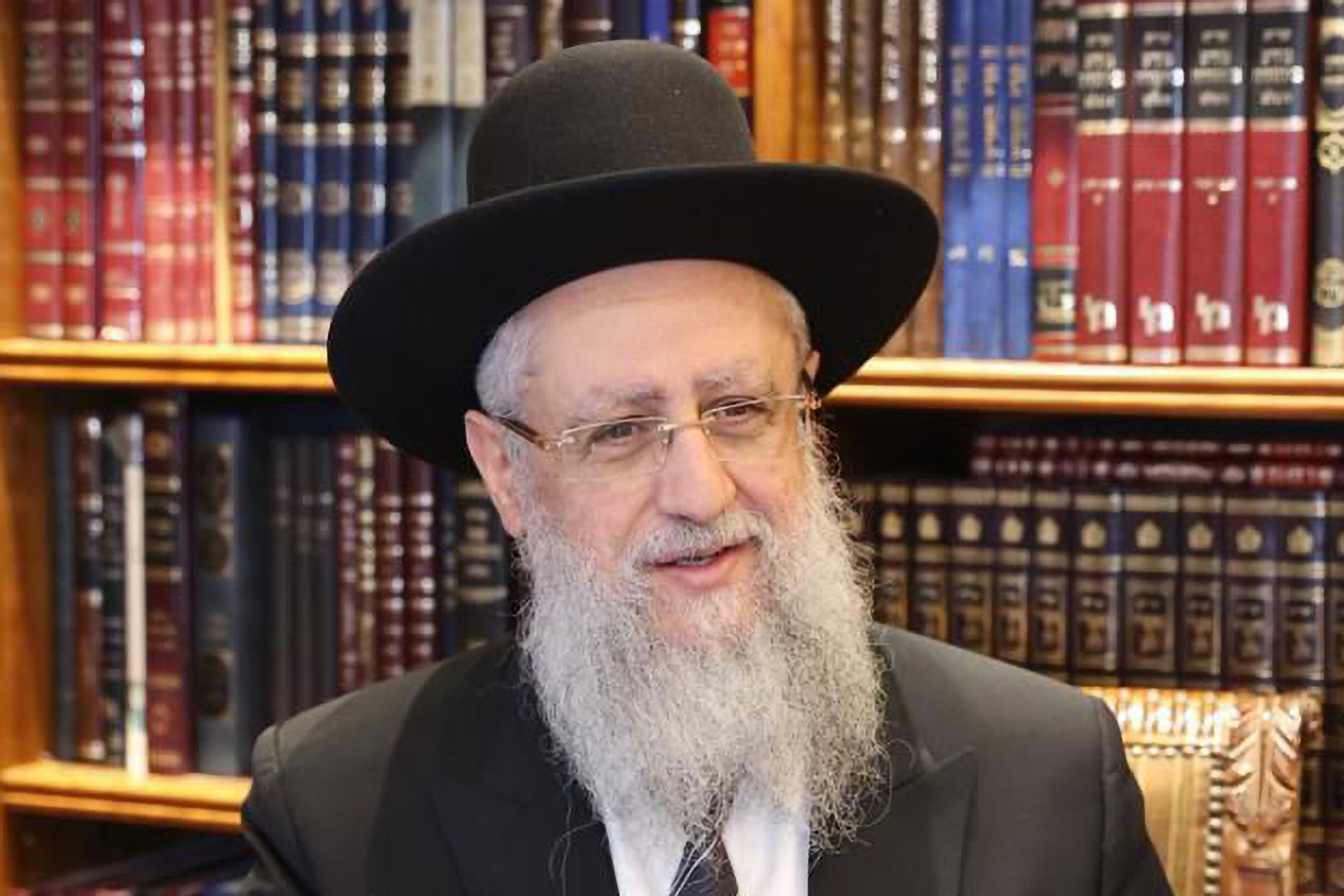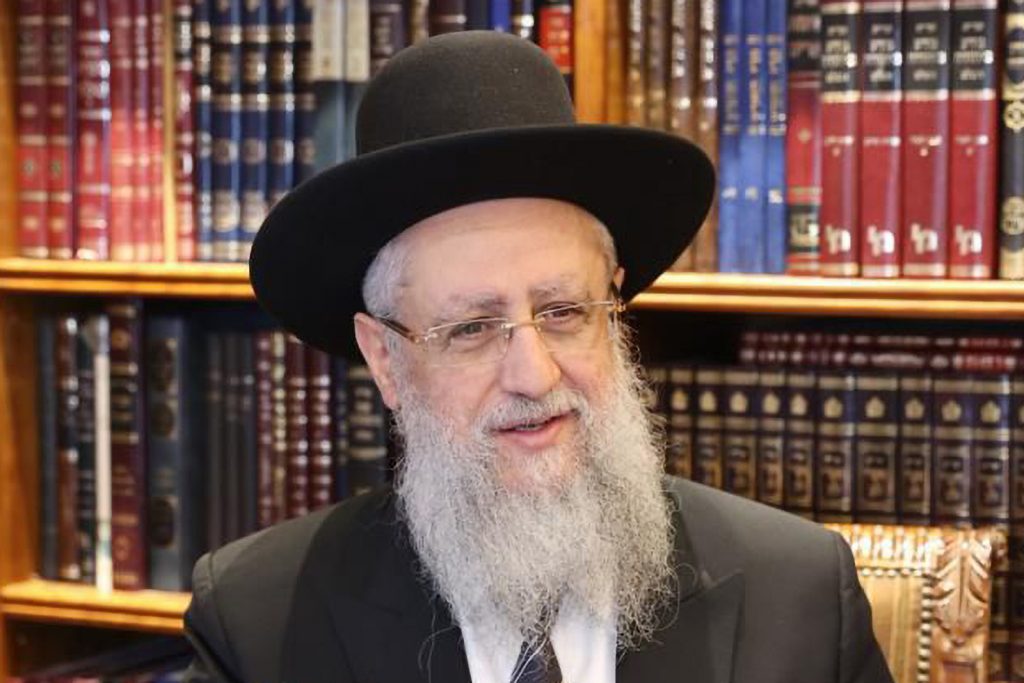
(RNS) — Just in time for the Jewish new year, which began last week, Israel elected a new Sephardic chief rabbi, but voting for the Ashkenazi one remains mired in controversy.
The appointment comes after months of vacancy, the longest in the history of the office, which stretches back before the founding of the state of Israel.
The new Sephardic chief rabbi will be Rabbi David Yosef. Yosef is the third in his family to hold the position. He is the brother of previous Sephardic Chief Rabbi Yitzhak Yosef and son of Rabbi Ovadia Yosef, the Iraqi-born scholar who is remembered as one of the most important Sephardic rabbinic figures of the 20th century and held the post from 1973-1983.
The post of Sephardic chief rabbi has long been seen as the territory of the Shas political party, which was founded by the elder Yosef in 1984 after his term as chief rabbi ended.
“I will continue to work with all my strength to unify the people of Israel, out of a deep commitment to Torah values, the people and the land,” David Yosef said in a statement, according to Israeli Media. “I will continue to devote my power to strengthen the bond between all the national camps.”
Of the two rabbis, the Sephardic represents the traditions of Jews whose heritage stems from the Middle East and North Africa, and the Ashkenazic those from Eastern and Central Europe. They lead the Chief Rabbinate, a department of the state that has sweeping power over many facets of Israeli life, mostly those that intersect with Jewish ritual and law, such as marriage, divorce, conversion and more.
The rabbinate influence over marriage and conversion has wide-ranging impact, not just in Israel but for Jews abroad who are considering moving there or marrying Israelis. That, combined with successive corruption scandals, has led it to become one of the most unpopular institutions in Israel.
“This has created a lot of cynicism and even more disenchantment with the rabbinate,” Rabbi Seth Farber, the founder and director of ITIM, a nongovernmental organization that advocates for more openness in Israel’s religious institutions, told RNS. ITIM took the rabbinate to court this summer to force the vote in accordance with Israeli law.
The two previous chief rabbis served 11 years, having extended the traditional 10-year terms in June, after disagreements over the makeup of the 150-member council that elects them, in particular the inclusion of women on the council.
According to Farber, a poll his group recently conducted found that more than 60% of Israelis are dissatisfied with the rabbinate. He also noted that there has been a 20% decrease over the last decade of Jewish Israelis getting married within the rabbinate. In recent years there has been a major push for alternatives to institutions traditionally controlled by the rabbinate, such as kosher certification and conversion.
Many have questioned whether the electoral council’s members should be eligible to elect their own family members to the Chief Rabbinate, given that it is a state institution and not purely a religious one.
While the vote for Sephardic rabbi concluded, the vote for the Ashkenazic rabbi ended in a tie between Micha Halevi, chief rabbi of Petah Tikva, and Kalman Bar, the Ashkenazi rabbi of Netanya.
The split vote speaks to the tug-of-war over the role between two major factions of Orthodox Judaism in Israel, the Haredim and the Religious Zionist camp.
The Haredim face criticism in Israel for largely eschewing national service and economic participation, preferring to self-segregate and focus on religious study. In contrast, Religious Zionism posits that the establishment of the modern state of Israel is a religious development, despite its secular and socialist founders, and adherents enthusiastically participate in military service and the general workforce.
The Religious Zionist movement is also the main driver of the settlement project. Its leaders in the parliament, Bezalel Smotrich and Itamar Ben-Gvir, are widely seen as extremists.
In recent years, the Ashkenazi rabbinate has largely been seen as a Haredi bastion, but the fact that both leading candidates, Halevi and Bar, have roots in the Religious Zionist movement, may signify a change.
For those hoping for more liberalization of the rabbinate, Halevi is unlikely to be their answer.
“Halevi represents the radical right of the Religious Zionist movement, which over the past decade has moved closer to the Haredim,” Farber said. “It is anti-conversion, anti-pluralism, anti-choice, pro-coercion.”
Since the split vote last week, Halevi has contested results, arguing that one elector submitted his vote for Halevi in the envelope for the Sephardic post by accident, which would have put Halevi in the lead.
However, Israel’s Justice Ministry ruled that that cannot be considered a legal vote and council must vote for a new Ashkenazi chief rabbi as soon as possible.
Halevi is expected to take the matter to Israel’s Supreme Court, further delaying the vote.

